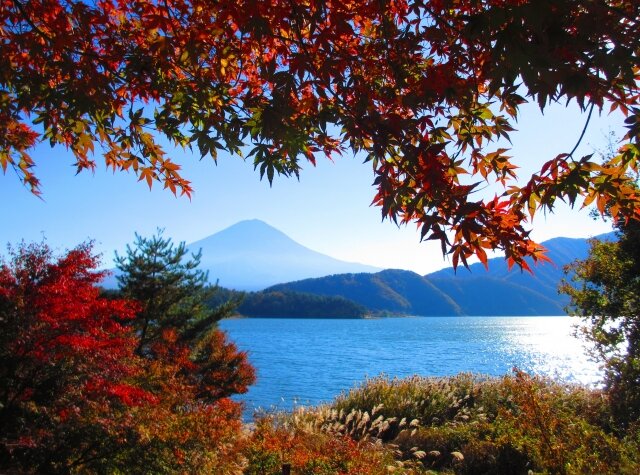Culture Day - the Sunniest Public Holiday
3Rd November is a public holiday, Culture Day, in Japan. This very general sounding holiday is originally the birthday of Meiji Emperor, but it is very little-known and hardly mentioned. People simply enjoy this one-day break in the beautiful autumn sun in a variety of ways.
Emperor’s Birthday, New Constitutions
Meiji Emperor was born on 3rd November 1852. He has a unique place in Japanese history as the first emperor to assume the helm after 250 years of Shogunate government. It was made the official holiday in 1868. This holiday has been voided once, right after his death in 1911, but with widespread public support, it was reinstalled as the day of celebration of Japanese heritage in 1927.In 1945, General Head Quarters, run by American occupying forces, immediately abandoned it after the end of the Pacific War, for its strong association with the pre-war doctrine. But those who were loyal to the imperial family worked tirelessly to keep it as a public holiday and successfully fixed it as the day of the official announcement of the new constitutional law. GHQ agreed on the condition of erasing the connection to imperialism and set 3rd November as the new public holiday to commemorate peace and culture, Culture Day.
The Order of Cultural Merit
There are many cultural events on this day.The most official annual event is the awarding of the Order of Cultural Merits, established in 1937, although it has not always been held on this date until recently.The committee selects five to seven people who have made significant contributions to the culture of Japan. This year the awards are going to a composer Toshi Ichiyanagi, a ceramic artist Masayuki Imai, a professor of economics Hiroshi Kaneko, a professor of information technology Makoto Nagao, and a playwright/critic Masakazu Yamazaki. All of them are now in their eighties and are still active and influential in their respective fields. They receive medals from the Emperor at the Imperial Castle.It is a very happy occasion, and the receivers are always seen honoured, humbled, yet very proud to be in the company of the Emperor, as well as peers in their different fields.
… and Neo Culture is Also Promoted
Around this time of year, the Department of Culture hosts the National Arts Festival. It started in 1946 to celebrate and promote Japanese art productions. The government often commissions a new piece of play, dance, or music, often progressive, to be presented in Autumn.The categories include traditional dance and play such as Noh and Kabuki, some folklore arts, and more recently a lot of TV drama/documentary programmes, movies, and now beginning to include more new media arts.
Best Day for Public Holiday
All the historical facts and formality aside, this public holiday is a day for cultural events and freebies.Many galleries and museums across Japan open their doors free of charge. Some embassies host cultural exchange events, and Japan Self-Defence Airforce hold an annual event at their base in Iruma City, staging their Aeroplane acrobatic display.A lot of tourist guides, magazines, and websites list their recommendations from a wide variety of choices, suitable for different interest and age groups. It is a day to appreciate the depth and breadth of the cultural aspects of Japanese society, both old and new.3rd of November is, in fact, the perfect day to host events to encourage the public to come outside. It is a statistically well-known day of fair weather, with a high probability of having clear skies. undoubtedly the best day for the aeroplane display. It also is a very popular day for weddings, and ideal for a day in a gallery, or in parks or forests.
The Economy of Culture
For a long time, “Culture” has been considered something that does not contribute to the economy, reserved for those from the high society.But studies in the 1980s have proven that building and maintaining an active cultural hub contribute to the economy, not only in connection with the contracts involved, but also associated with consumers gathering and spending on food, drinks, and merchandise. Some purists may complain that creativity and cultural contribution cannot be measured by money earned. But it is a good economic cycle to enrich society and connect more people and communities, generating new ideas and opportunities.Culture Day works as a reminder every year that exploring new ideas and possibilities has a multidimensional impact in peoples’ lives and in the life of society as a whole.

